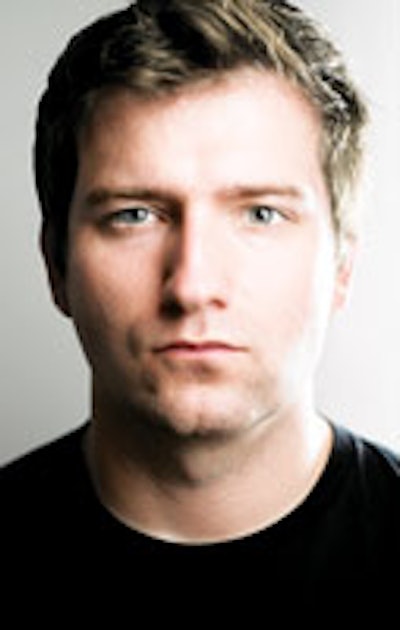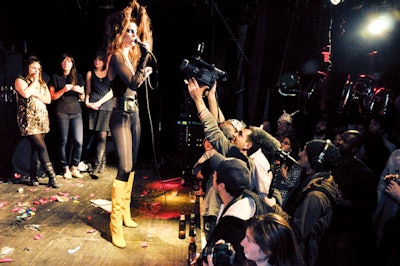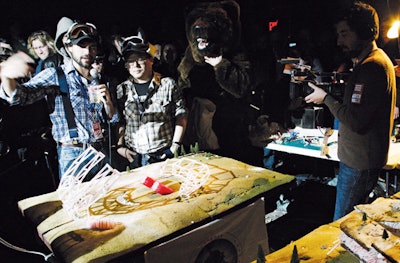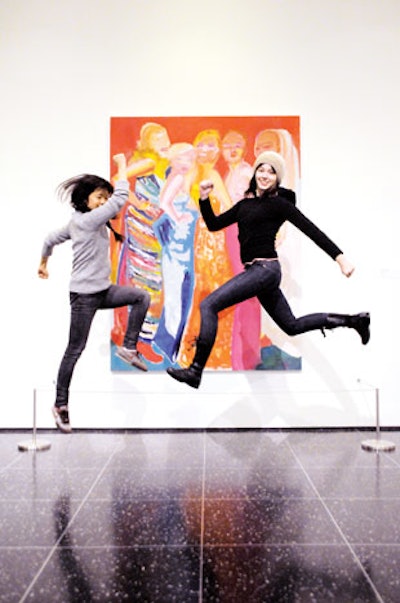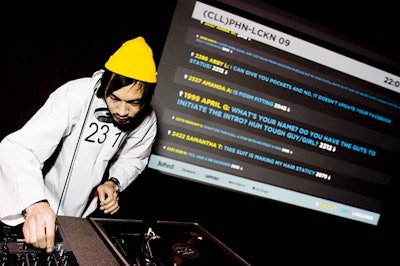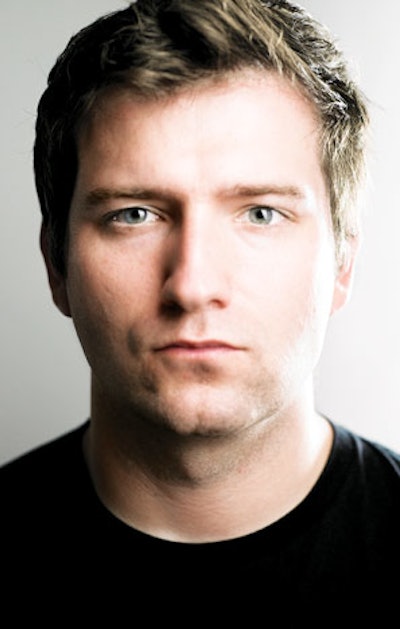Last week Doug Jaeger teamed up with New York graffiti artist Poster Boy to reimagine a Museum of Modern Art marketing campaign he had helped conceptualize—but the ordeal didn't sit well with MoMA. Before all this, and Jaeger lost his position with the museum, we interviewed him for our next magazine issue. Here's what he had to say.
As founder, C.E.O., and creative director of New York-based branding and marketing firm TheHappyCorp and its offshoot LVHRD (pronounced “live hard”), Doug Jaeger generates unique ideas for events that explore new ways for people to interact and think creatively. Funded by a mix of sponsorship and ticket sales, his events include competitions that pit people from fields like fashion and architecture against each other and “cell phone lockdowns,” where guests either surrender their phones for the evening or rely solely on text messages to communicate. In March, an “un-conference” called WRK/PLY will explore the intersection of work and recreation. Jaeger is also the recently installed president of the Art Directors Club, and works with the Museum of Modern Art’s marketing advisory committee to help attract young, creative audiences to the museum.
You seem to do these events just for fun. What do guests take away from your events?
What we’re trying to do is inspire people by getting them connected to others in different fields. We’re trying to cultivate a cross-pollination between various disciplines in a way where one of those professions is showcased. The formula overall that we used to get where we are was to create competitions for people who were innovative in their fields, that got people who are the best at what they do to socialize; and from there, we built our audience.
Do you find much of a difference in the way people in creative fields participate compared with those from the business world?
What we’ve found is that there are people in the business sector who have a really strong creative sense. They end up participating equally or even more. I think it’s kind of a sad generalization that people in business aren’t creative—it’s just that their careers don’t often permit them to be. When they come to the events, they feel free to express themselves, expand their horizons, and meet and collaborate with people.
You’ve done events that hinge on the presence or absence of technology. Do you find it’s more of a blessing or a curse?
What I think we’re really interested in is how it changes things. We really enjoy playing with technology and integrating it into the fabric of our events. It’s great, but we don’t think it’s a substitute for actually meeting people. We use it as an enabler, and then, by taking it away, it can have other effects.
Are you finding that people are more receptive to these sorts of activities, given the current economy?
In terms of content of the events, what we offer is pretty unusual. And I think the people we attract would come no matter what. As far as a response to the current circumstances, we are thinking about doing a group of events that help people find work. We believe in hard work. A lot of people are losing their jobs, so we’re trying to fi gure out a way to get them employed. We’re in a challenging time, but I don’t think we are going to stop trying to have fun.
